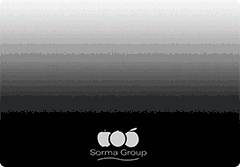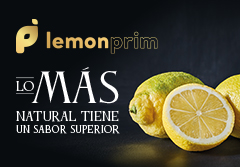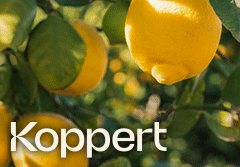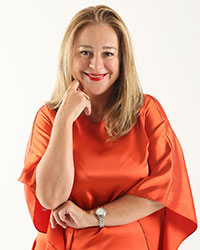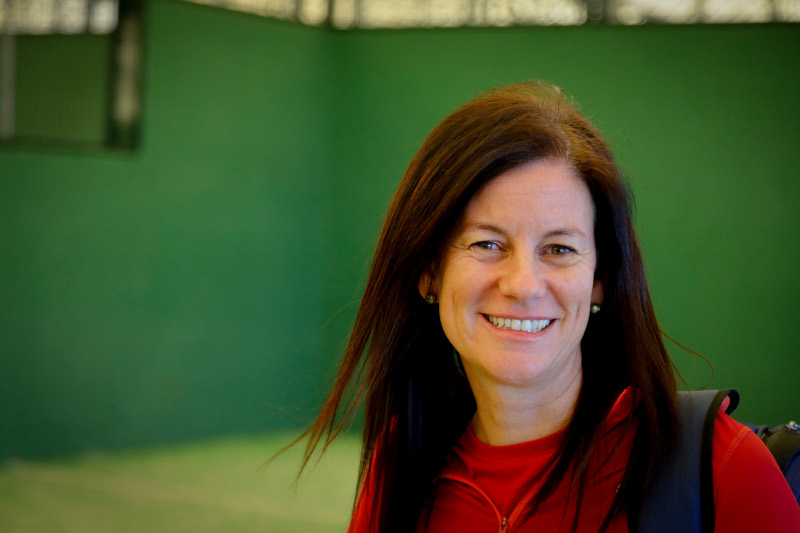I would never have imagined that I was facing a molecular biologist with a postgraduate diploma from the University of Heidelberg (Germany), particularly, when, without beating about the bush, she told me she was dyslexic.
Although your surname is clearly Spanish, your mother’s side of the family is German. I guess your mother tongue is German as well…
I am afraid not, because my mother never spoke to us in German. In fact, at home we talked in English because my parents lived in South Africa for many years and my brother was born there. When they came back, my brother no longer spoke Spanish and we were both sent to the British School. The truth is that I started to study German when I was in my third year of secondary education. I spent six years in Germany and my husband is German; so now it is the language we speak at home.
What led you to Heidelberg?
Firstly, the quality of its university and the prestige of all the scientific centres located there, and, secondly, there was a family debt with this city because my maternal grandfather passed the exams to become a judge there, but he was never able to practice because he was Jewish. I delved into the archives and found his documentation.
Searching for your maternal roots?
I suppose so. I think that it is something that happens when you are aware that your roots have disappeared and you look back and you don’t have any family, or even any keepsakes. My grandparents were Jews, but by chance they were on holiday in Spain just before the war broke out. As the situation was becoming dangerous in Germany, my great-grandparents sent them a letter warning them not to return and they followed this advice and did not. The rest of the family, with the exception of an aunt on my mother’s side who emigrated to the United States, all disappeared.
Wow, that is hard. And you married a German…
Yes, I met my husband in Heidelberg. In fact, when I got married, my mother, who still had a great aunt living, did not want to tell her that I had married a German.
The grandchildren or great-grandchildren of a generation marked by the war are not guilty of anything. These are history lessons that we must not forget.
How does a biologist end up in the world of communications and trade fair services?
I never wanted to work in the family business, Brifer Services. My parents’ business started off in our dining room and when they were travelling, I took phone calls or talked to the exhibitors. I was immersed in the business from an early age, but when I reached the age of 18, I wanted to become independent and leave home. I wanted to do Marine Biology or Tourism, but in the end I didn’t do either, but rather Molecular Biology, and now I have spent over two decades dedicated to Communications. I had to prepare myself by studying a master’s in Communication and Marketing. I am a very curious person and I like virtually everything, therefore I am very happy with my job.
Did you never consider working as a biologist?
After doing my doctorate in Heidelberg and specialising in skin cancer at what in Spain would be the equivalent to CNIO (National Oncological Research Centre), I realised that my boss, as a researcher, spent many hours reading and publishing articles. I would have to follow the same steps and I have the difficulties of a dyslexic person for this type of work. It was a serious struggle for me. This also coincided with a time when my mother became ill and I started to help her more in earnest. This is how it all started, over two decades ago.
I am certain that you must have a steely determination because I can’t see it being at all easy for a dyslexic person to become a Molecular Biologist.
Dyslexia is a very broad-spectrum disorder and it has many facets. I knew how to organise myself to be able to study, although obviously, it took a greater effort than others. I never studied alone because as I found reading difficult, so I studied in a group, commenting on the topics and this helped me to remember them. I was bolstered up by the group and as I am very good at preparing summaries and outlines, I returned the favour in this way.
You know that in Spain we usually say that Germans are very rule-abiding.
(Laughter). I am of German descent and I am married to a German, but my father is Galician. Perhaps for this reason I wouldn’t say that I am very set in my ways; rather I am structured, which is different. Structured is being methodical and in this sense, I am Germanic. For example, I always get up at the same time, at 6.40 am and I have the same work routine, which starts with a first sifting through my emails.
How many days a week do you play paddle tennis?
I play sport every day; I need it for my mental health and it comes easily to me. My week includes three days of playing paddle tennis, one of Zumba, another swimming and another cycling, in addition to walking our dog, Laika, 4 kilometres a day.
When I was young, I always played tennis and around seven years ago I discovered paddle tennis. I am on a team of 14 seasoned players at the Jarama Sports Centre, which we all enjoy a great deal.
Talking about bicycles, I counted nine in your garage and there are four of you.
(Laughter). Yes, we have loads, for all ages and sizes. At home, we use them very frequently because we live virtually in the country and we have a bicycle lane where there is no danger.
Are you one of the good paddle tennis players?
I’m not bad, but I’m not one of the best. I am one of the experts in the third half because I am very good at organising the beers at the end of the game when we are competing at another venue.




